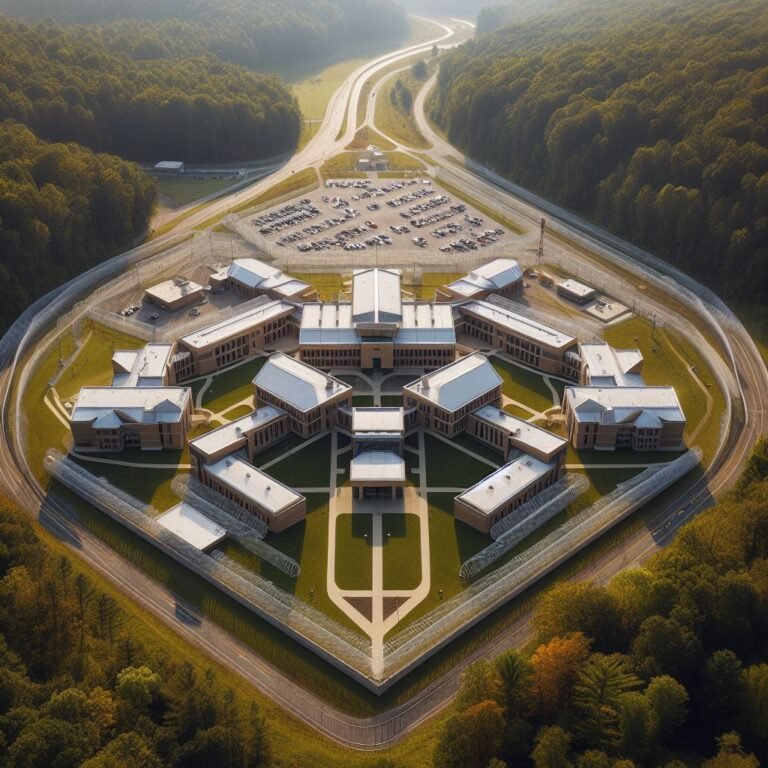
Laurel County Detention Center: A Closer Look
The Laurel County Detention Center, nestled in the heart of southeastern Kentucky, serves as a critical hub for the incarceration and rehabilitation of inmates. Let’s delve into the details of this facility, its purpose, and the services it provides.
1. Location and Overview
- The Laurel County Correctional Center is situated in London, Kentucky. This county jail facility plays a pivotal role in housing inmates awaiting trial, sentencing, or those who have been convicted of crimes.
- With a capacity to hold approximately 300-400 inmates, the center caters to a diverse population, including county, state, and federal prisoners.

2. Mission and Programs
- Inmate Rehabilitation: The center is committed to fostering rehabilitation and personal growth among its inmates. Various programs are offered to equip them with essential life skills, vocational training, and educational opportunities.
- Health and Well-Being: Inmates receive medical care, mental health support, and access to counseling services. The goal is to address their physical and emotional needs during their stay.
- Substance Abuse Treatment: Recognizing the prevalence of substance abuse, the center provides counseling and treatment programs to help inmates overcome addiction.
- Educational Initiatives: Inmates can participate in literacy programs, GED preparation, and vocational training. These initiatives aim to empower them for a successful reintegration into society upon release.
3. Inmate Services
- Current Inmate List: Families and legal representatives can access an up-to-date list of inmates on the center’s website. This resource includes information about charges and mugshots.
- Visitation: Regular visitation hours allow inmates to connect with their loved ones. These interactions play a crucial role in maintaining family ties and providing emotional support.
- Legal Assistance: Inmates have access to legal resources, including consultations with attorneys and assistance in navigating the legal system.
- Commissary: Inmates can purchase essential items such as toiletries, snacks, and writing materials through the commissary.
4. Staff and Administration
- The center is overseen by Jailer Jaimie Mosley and a dedicated team of correctional officers. Their commitment to safety, security, and inmate welfare is commendable.
5. Community Impact
- The Laurel County Detention Center is not just a place of confinement; it’s an integral part of the community. By providing rehabilitation, education, and support, it contributes to the overall well-being of both inmates and the region.
6. Facility Design and Security Measures
- The center’s architecture is purposefully designed to balance security with humane treatment. High walls, secure gates, and surveillance systems ensure the safety of both inmates and staff.
- Cell Blocks: The facility comprises multiple cell blocks, each housing inmates based on factors such as security level, gender, and classification. These blocks are equipped with individual cells, common areas, and recreational spaces.
- Control Room: The nerve center of the facility, the control room monitors security cameras, intercoms, and access points. Correctional officers stationed here play a critical role in maintaining order.
7. Inmate Classification
- Pretrial Detainees: Individuals awaiting trial are housed separately from convicted inmates. This separation prevents undue influence and ensures a fair legal process.
- Sentenced Inmates: Those serving sentences are classified based on factors like behavior, risk, and rehabilitation needs. This classification determines their housing unit and privileges.
8. Inmate Programs and Services (Expanded)
- Educational Opportunities: Inmates can participate in literacy classes, vocational training, and GED preparation. These programs empower them with skills for reintegration into society.
- Substance Abuse Counseling: Recognizing the impact of addiction, the center offers counseling and support to address substance abuse issues.
- Mental Health Services: Inmates receive mental health assessments and access to counseling. Addressing mental health is crucial for successful rehabilitation.
- Religious Services: Regular religious programs allow inmates to practice their faith and find solace.
- Work Release Programs: Eligible inmates can participate in work release programs, contributing to the community while serving their sentences.
9. Staff Training and Professionalism
- Correctional officers undergo rigorous training in security protocols, crisis management, and conflict resolution. Their commitment to professionalism ensures a safe environment.
- De-escalation Techniques: Officers are trained to defuse tense situations without resorting to force. Communication skills play a pivotal role in maintaining order.
10. Community Outreach and Reentry Support
- The center collaborates with community organizations, offering resources for inmates upon release. These include job placement assistance, housing referrals, and substance abuse support.
- Reentry Programs: Inmates receive guidance on transitioning back into society. This includes job readiness workshops, financial literacy, and family reunification strategies.
In conclusion, the Laurel County Detention Center stands as a multifaceted institution, balancing security with compassion. Its mission extends beyond incarceration, aiming to transform lives and create a positive impact. As we reflect on its role, let us recognize the efforts of those who work tirelessly within its walls to promote justice and rehabilitation.
Disclaimer: This blog post is for informational purposes only and does not constitute legal advice or endorsement. Delve into the mysteries of The Nebula’s Civilization, a digital odyssey—a manga that transcends mere entertainment.